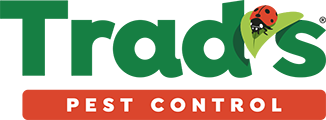It’s late at night and you’ve had a long, hard day. But thankfully, the weekend is ahead and although you know you shouldn’t raid the pantry for a midnight snack, you can’t resist. Stumbling into the kitchen for a few quick bites, you dive into a bag of chips.
As you enjoy the guilty pleasure, you can’t help but notice a squeaking sound. You listen carefully for it again, only to hear something scampering across the floor. Alarmed, you flip on the nearest light and catch a glimpse of a long, cylindrical, scaly tail. Then you notice small gnaw marks on the very bag of chips in your hand. Ew!
Suddenly, you realize you have a rat in the house and it’s been eating right out of your pantry. How gross! In an outright panic, you throw the bag into the trash, vigorously wash your hands, and start to wonder, can rats make you sick?
Do Rats Make People Sick?
In the quiet corners of many homes, often hidden from sight, rats can establish their dominion. While they might seem like just another pest problem, the implications of having rats indoors extend far beyond mere annoyance. Rats, as carriers of numerous diseases and health risks, can indeed pose significant threats to human health. So, let’s get into the science, the risks, and the preventive measures associated with rat infestations.
Understanding the Health Risks
Okay, it’s not just about historical events like the Black Plague, which killed between 30% to 50% of the entire European population, claiming the lives of 75 million to 200 million in just a few years. (Although, this extreme example does indeed serve to remind us of how rodents can transmit and carry disease.) Here is what makes rats so very dangerous:
- Leptospirosis. One of the most severe diseases transmitted by rats involves a bacterium called Leptospira. Rats spread this through their urine, which can contaminate water, soil, or food. If this enters the human body through cuts, mucous membranes, or ingestion, it can lead to flu-like symptoms, kidney damage, liver failure, or even meningitis in severe cases.
- Hantavirus. This virus is transmitted through the droppings, urine, or saliva of infected rodents. Inhalation of dust containing dried excrement can lead to Hantavirus Pulmonary Syndrome, a severe respiratory condition with a high mortality rate.
- Salmonellosis. Rats can contaminate food with Salmonella bacteria, leading to food poisoning with symptoms like diarrhea, fever, and abdominal cramps.
- Rat-bite fever. This bacterial disease can be transmitted through a rat bite or by handling rats, their excrement, or contaminated surfaces. Symptoms include fever, rashes, and joint pain.
- Parasites. Rats can introduce parasites like fleas, ticks, and mites into your home. These can then infest pets or humans, leading to further health issues like Lyme disease from ticks or allergic reactions to flea bites.
- Secondary effects. Rats gnawing on wires can lead to electrical fires, posing a direct physical threat. Additionally, their burrowing can compromise the structural integrity of homes, leading to potential accidents or injuries.
And let’s not skip over your mental health. The psychological impact of living with a rat infestation can be profound. The constant worry about health, safety, and cleanliness can lead to anxiety, stress, and in some cases, significant mental health disturbances.
How Rats Enter Your Home
Just like people, rodents and other pests need three basic things to survive: food, water, and shelter. They love things like open garbage, pet food, and unsealed food containers. Also, water. Leaks or standing water sources are like oases for rats. Additionally, shelter. Clutter, voids in walls, or any small entry points (rats can squeeze through holes the size of a quarter).
Preventive and Mitigative Measures
Sanitation
- Cleanliness is key. Regularly clean food preparation areas, store food in sealed containers, and manage garbage effectively.
- Eliminate water sources. Fix leaks and remove standing water.
Home Fortification
- Seal entry points. Use steel wool or caulk to close off entry points. Rats can fit through very small openings.
- Declutter. Less clutter means fewer places for rats to nest.
Rat Control
- Traps. Snap traps or humane traps can be effective. Placement is key; rats tend to travel along walls.
- Baits. Use with caution due to the risk of secondary poisoning to pets or wildlife.
- Professional pest control. For severe infestations, professionals can offer targeted, effective solutions.
And, last but not least, health vigilance. If you suspect exposure to rat-related illnesses, seek medical advice promptly. Inform your healthcare provider about the rat situation to guide diagnosis and treatment.
Rats inside a house can indeed make you sick, both directly through disease transmission and indirectly through psychological and physical impacts. However, with vigilance, proper sanitation, and proactive pest management, the risks can be significantly mitigated.
Understanding these dangers isn’t to instill fear but to empower homeowners to take decisive action to protect their health and well-being. If you ever notice signs of rats in your home, don’t delay in taking steps to address the issue, ensuring your living space remains a safe haven from these unwanted guests.
Protect Your Property from Rats with Trad’s Pest Control – Jacksonville’s Trusted Experts!
Rats can wreak havoc on your home or business, causing damage, spreading disease, and creating unsanitary conditions. When it comes to protecting what matters most, trust Trad’s Pest Control, Jacksonville’s go-to experts in rat control.
With decades of experience and proven methods, we provide customized solutions to eliminate rats and keep them from coming back. From thorough inspections to eco-friendly treatments, we’re committed to safeguarding your property and restoring your peace of mind.
Don’t let rats take over your space! Call Trad’s Pest Control today for fast, reliable, and effective rodent control services. Let us help you create a safe and pest-free environment.

